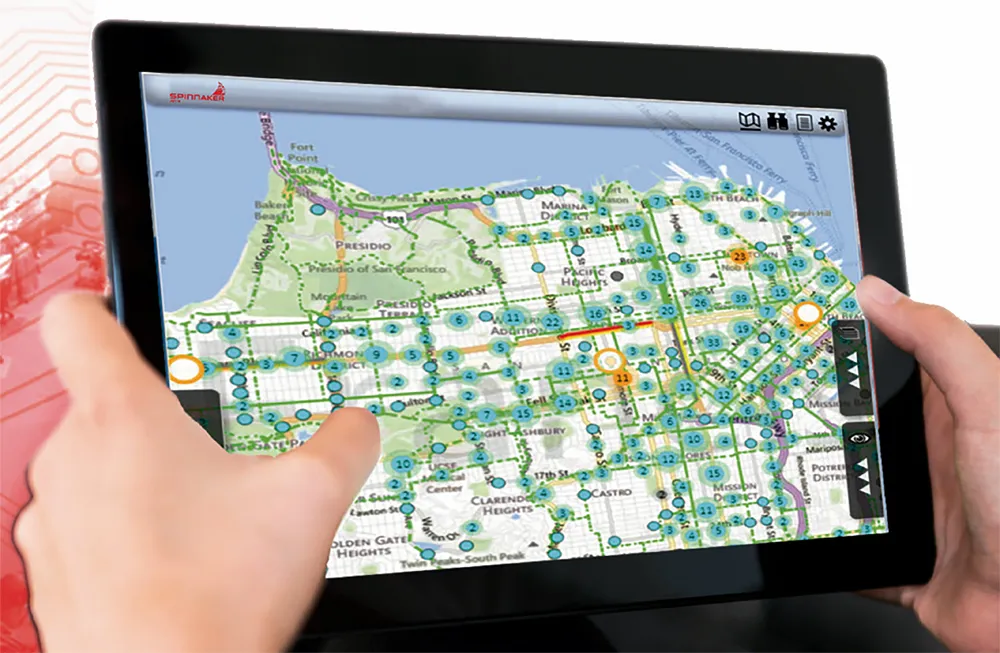Switzerland based ABB has launched the Terra SmartConnect (SC) fast chargers for electric vehicles (EV) in North America. Terra SC will be available with support for the CHAdeMO fast-charging standard, with SAE/combined charging system and will be made available in the Americas in second quarter of 2013. According to the company, the Terra SC can fully charge an electric car in thirty to 120 minutes and charge the battery of currently available EVs from 30 per cent to 80 per cent in about half an hour. The
April 12, 2013
Read time: 2 mins
Terra SC will be available with support for the CHAdeMO fast-charging standard, with SAE/combined charging system and will be made available in the Americas in second quarter of 2013.
According to the company, the Terra SC can fully charge an electric car in thirty to 120 minutes and charge the battery of currently available EVs from 30 per cent to 80 per cent in about half an hour. The fast chargers come with an outdoor-rated steel housing, a full-colour, eight inch, touch-screen user interface, smart connectivity features and wall-mount connections. Features include remote assistance, management, and servicing with smart software upgradeability.
Additionally, the charger has optional features of RFiD and PIN code authorisation, as well as a web-based statistics module with data per user to support energy usage reporting.
The company has also launched the Terra 53, the first 50-kilowatts (kW) CCS DC fast charging station said to be compliant with1731 BMW i3, 994 Volkswagen e-up! and e-Golf, as well as other CCS cars expected to be available autumn 2013 onwards.
The Terra 53 C is the first product configuration from a family of DC charging stations supporting the CCS standard. The Terra 53 C will be available for deliveries throughout Europe from summer 2013. From autumn 2013 dual outlet configurations will also be available, in the same compact form, for the German market supporting both CCS and type 2 mode 3 fast AC charging.
With a convenient fifteen to thirty minutes charging time, the cloud connected Terra 53 is compatible with any charging network or payment and billing platform through open standards based interfaces, such as the widely adopted open charge point protocol (OCPP), enabling easy and secure payments via smart-phone, parking management terminals, RFID or pin code access.
Features include remote monitoring, pro-active maintenance and functional upgrades, providing customers with the tools necessary to gather customer specific usage statistics and reports.
According to the company, the Terra SC can fully charge an electric car in thirty to 120 minutes and charge the battery of currently available EVs from 30 per cent to 80 per cent in about half an hour. The fast chargers come with an outdoor-rated steel housing, a full-colour, eight inch, touch-screen user interface, smart connectivity features and wall-mount connections. Features include remote assistance, management, and servicing with smart software upgradeability.
Additionally, the charger has optional features of RFiD and PIN code authorisation, as well as a web-based statistics module with data per user to support energy usage reporting.
The company has also launched the Terra 53, the first 50-kilowatts (kW) CCS DC fast charging station said to be compliant with
The Terra 53 C is the first product configuration from a family of DC charging stations supporting the CCS standard. The Terra 53 C will be available for deliveries throughout Europe from summer 2013. From autumn 2013 dual outlet configurations will also be available, in the same compact form, for the German market supporting both CCS and type 2 mode 3 fast AC charging.
With a convenient fifteen to thirty minutes charging time, the cloud connected Terra 53 is compatible with any charging network or payment and billing platform through open standards based interfaces, such as the widely adopted open charge point protocol (OCPP), enabling easy and secure payments via smart-phone, parking management terminals, RFID or pin code access.
Features include remote monitoring, pro-active maintenance and functional upgrades, providing customers with the tools necessary to gather customer specific usage statistics and reports.








